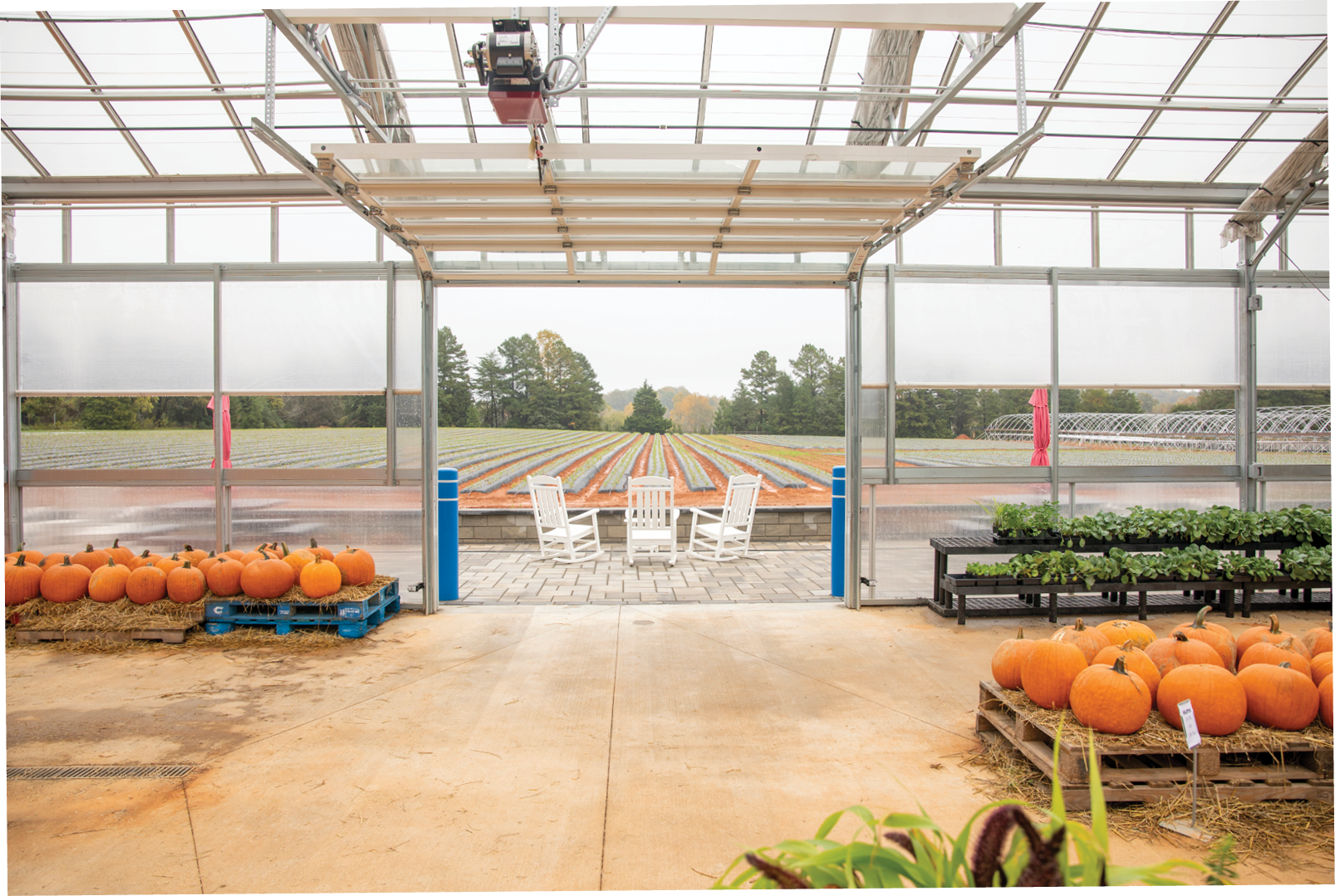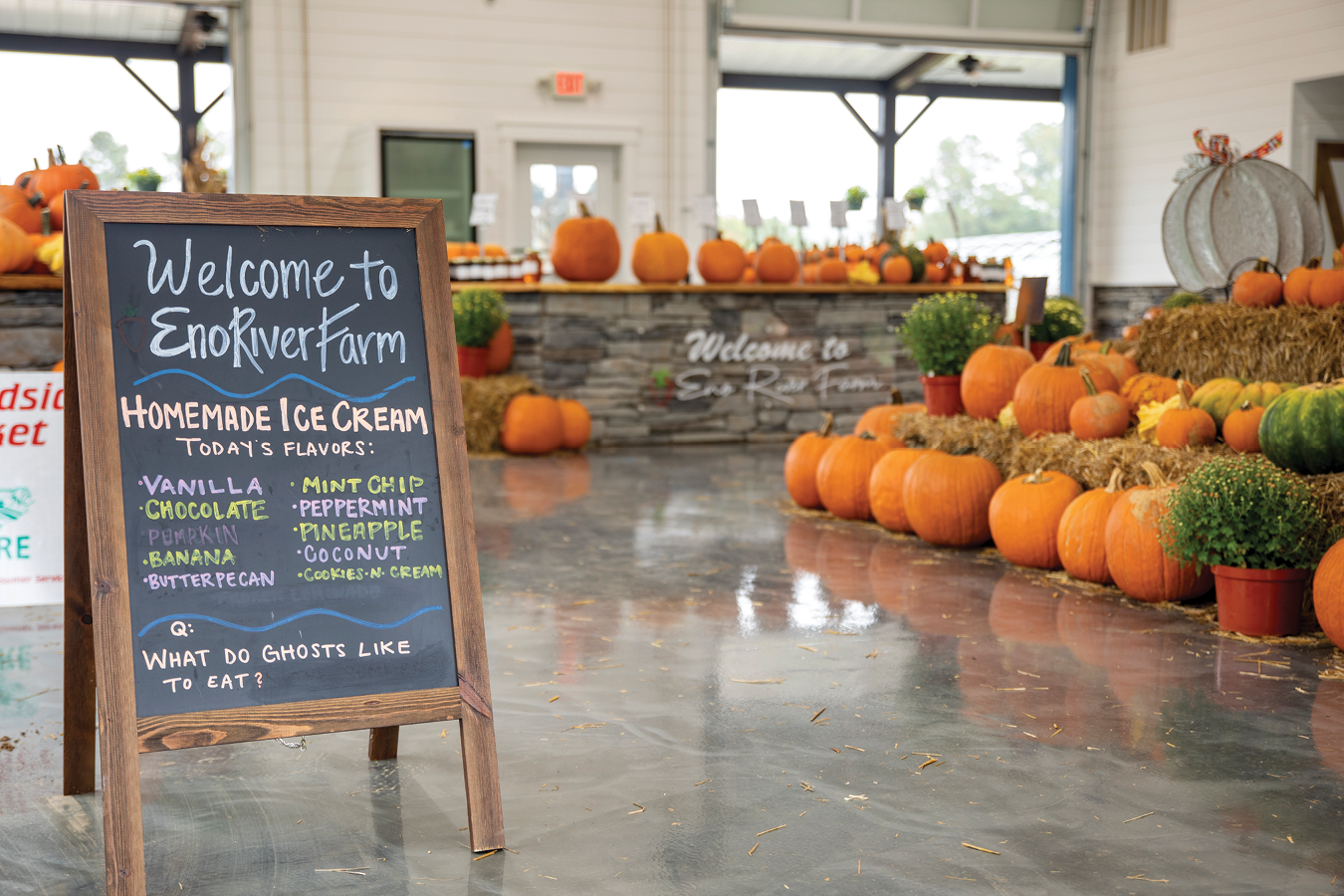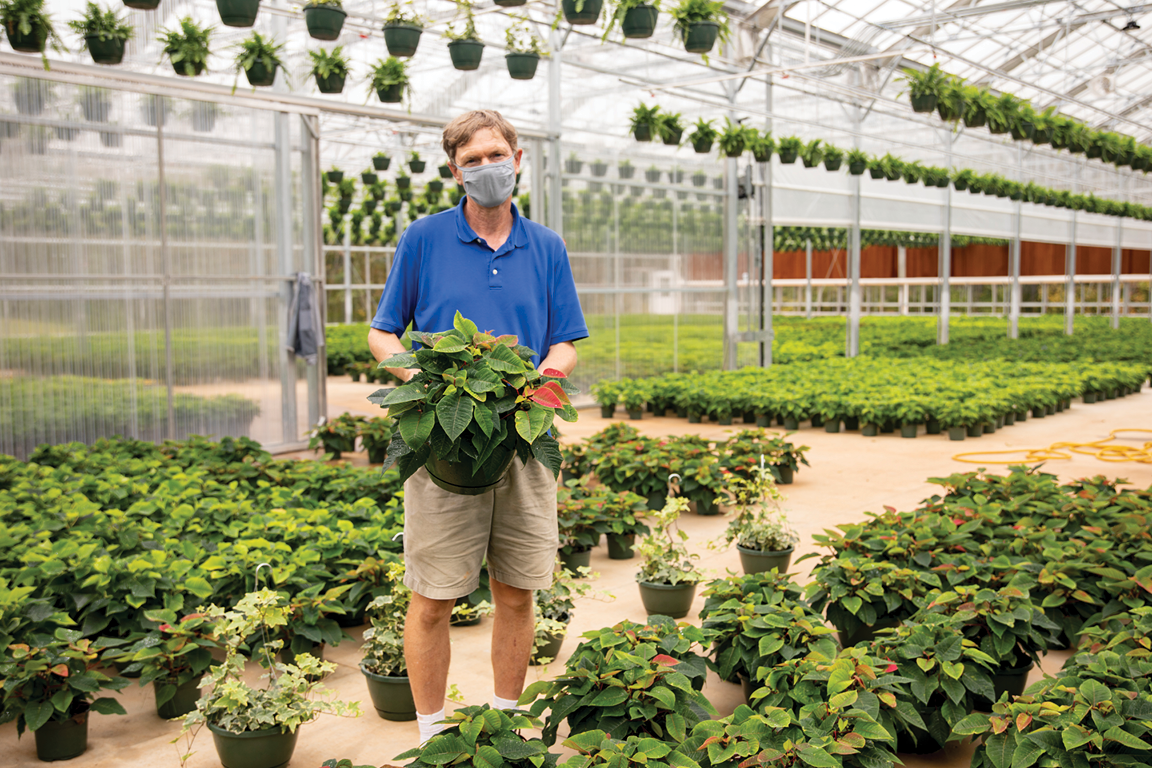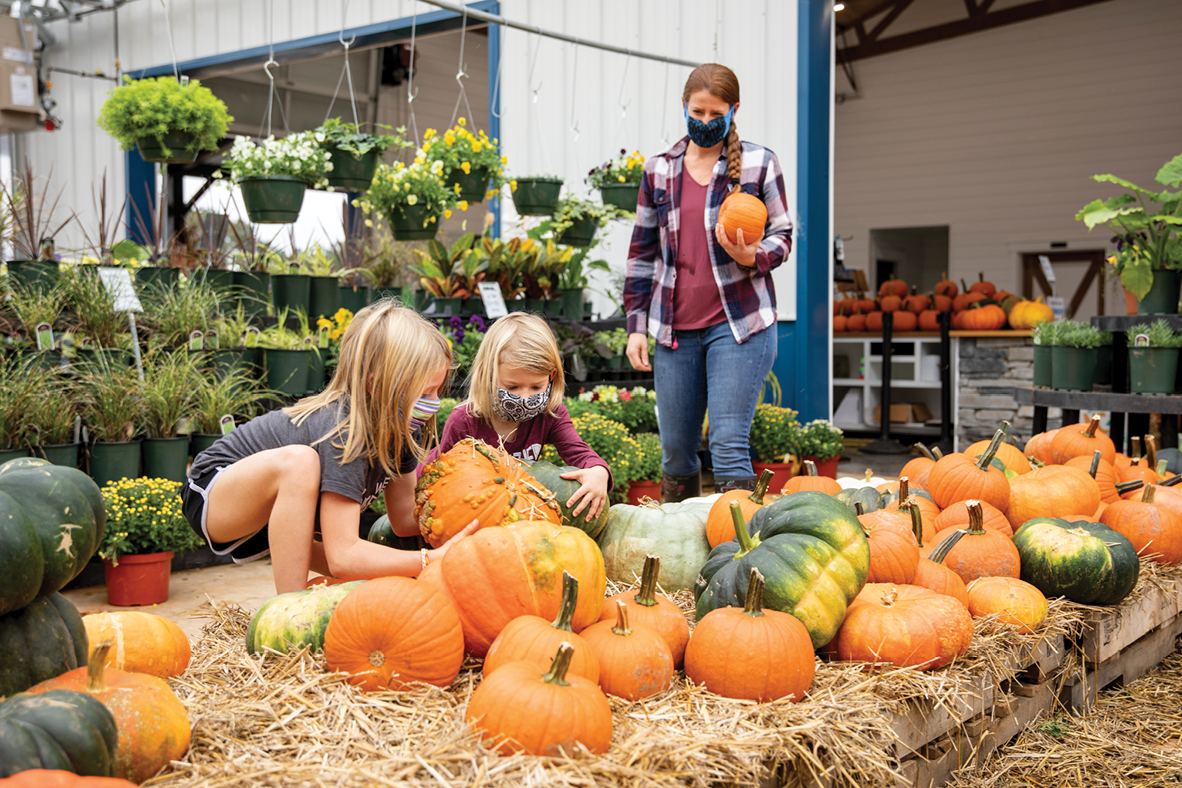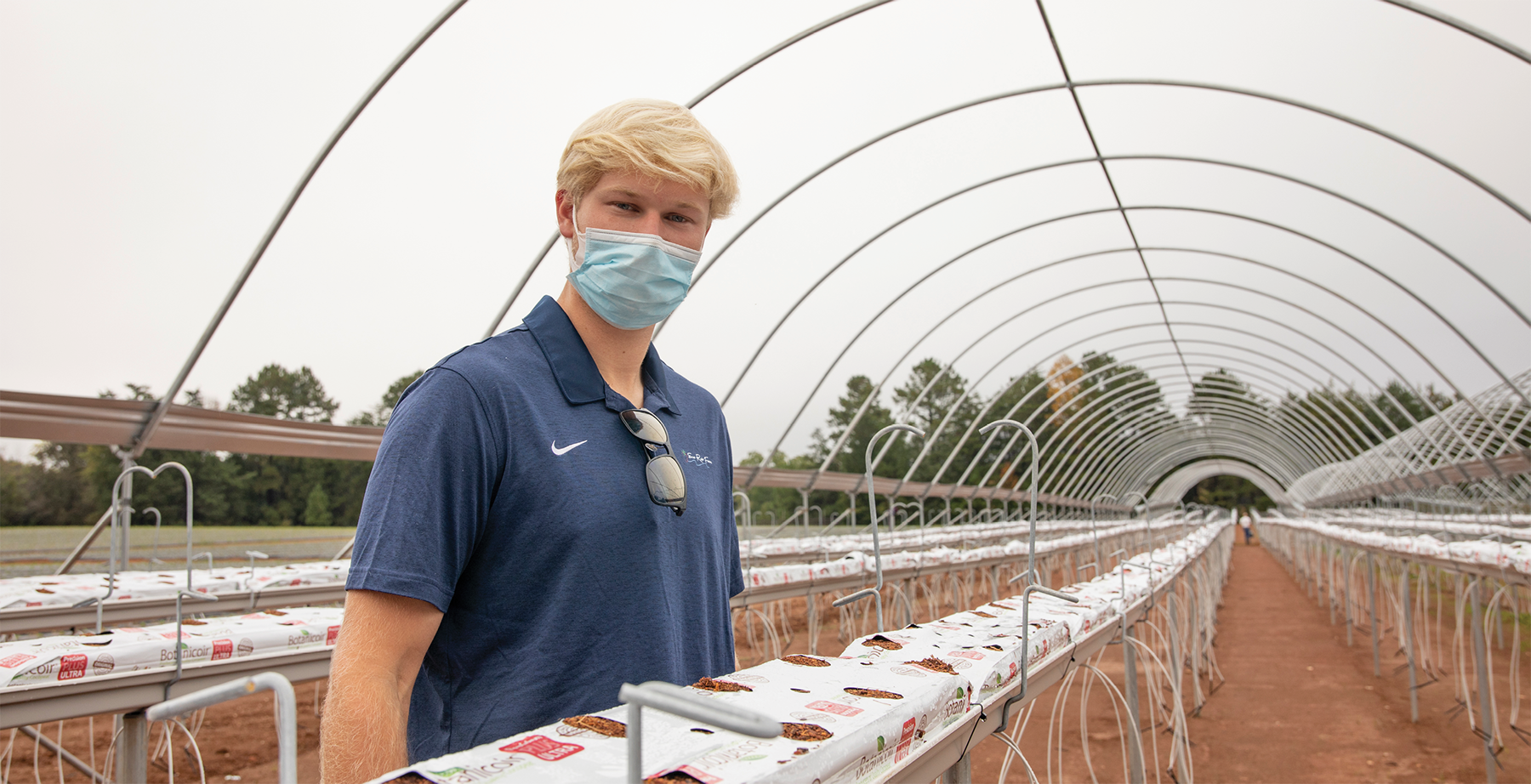
A desire to serve
Keegan Czesak, owner of Eno River Farm, stands in his hydroponic strawberry field.
Alumnus turns agricultural project into community farm, feeding families in the process.
Opening a new business during COVID-19 wasn't what Keegan Czesak ’18 had in mind when he dreamed of starting his own company, but that’s exactly what the Agricultural Technology program graduate did when Eno River Farm opened for business in Hillsborough, North Carolina, in March.
Eno River Farm isn’t your standard agriculture venture, but Czesak took Virginia Tech’s motto of Ut Prosim (That I May Serve) to heart while a student in the College of Agriculture and Life Sciences and ingrained it into the foundational fabric of the farm.
From the day the farm opened, his community was put at the forefront of the farm’s operations. Eno River Farms supported those in need through sizable meal donations of fruit, ice cream, vegetables, and honey, as well as 1,900 meals to local food banks as of July 2020.
“Our unique opening enabled us to give back to those in need and showcased the founding principles of Eno River Farm and Ut Prosim,” Czesak said. “We saw an opportunity to help our community and are glad that we were in the position to be able to do so. This isn’t something that we’re only going to do during a pandemic — this is what this farm was made to do and something we will do year after year.”
The donations had a profound impact — more than 32.5 tons of fresh fruit, 6.2 tons of fresh vegetables, and 185 gallons of local honey were distributed to the community.
The farm, along with its principles, came about from Czesak’s time in the College of Agriculture and Life Sciences. Near the end of his time in the Agriculture Technology program, Czesak crafted a mock agricultural business plan for one of his courses. He had the freedom to take charge of his creative vision, where he outlined how to start the farm, where would it be located, what would be grown, and how everything would be financed.
“To me, it was more than a senior project. It was more than a grade. It was something I wanted to turn into a livelihood,” Czesak said.

Left: A customer hauls pumpkins to their car from the Eno River Farm store. Right: Keegan (right) arranges plants in the store with Lindsey Jouannet (left), one of his employees.
Czesak’s inspiration for the project came from his grandparents, who had a large-scale commercial farming operation that included growing potatoes for Frito-Lay. That experience stuck with him, as well as when he took a trip to South Africa after graduation and witnessed million-dollar homes across the street from shantytowns. That juxtaposition inspired Czesak to want to give back to the surrounding community upon returning home.
Czesak’s uncle, Jude Samulsk, saw the passion for entrepreneurship in Czesak’s eyes and funded the farm. Samulsk had recently purchased land in Hillsborough to prevent it from being developed into real estate and decided he wanted it to be put to good use by bringing a community-based agriculture venture to the area.
The family-friendly, pick-your-own farm — just like the one in Czesak’s project at Virginia Tech — came to life. And the farm was able to stay true to its foundation during COVID-19, thanks to stringent health and safety protocols enacted by Eno River Farm.
“We had around 112,000 people cycle through the farm in our first two months with no reported cases of COVID-19,” Czesak said. “We're very proud of not transmitting it. We did such a great job of our social distancing and adhering to the best health and safety practices.”
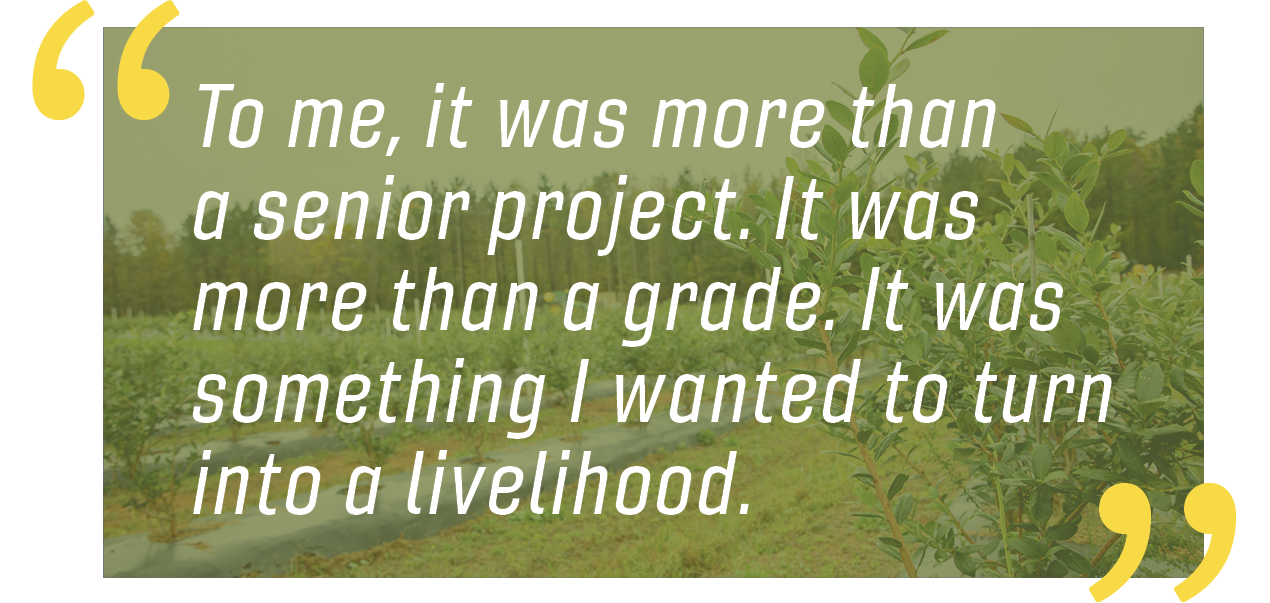
They did such a good job with health protocols that the farm participated in a Zoom call with the Canadian Department of Agriculture to discuss their experiences and share what worked for them. In all, more than 70 farms participated, the vast majority of which were in Canada.
“Instead of saying ‘stay six feet apart,’ we wanted to come up with a sign that stood out when you read it, a sign that was attention-grabbing,” Czesak said. “Our signs varied, but some of them said to stay 33 strawberries apart with ‘six feet apart’ in parentheses. We wanted to advertise it in a way that made it interesting and made you want to read it versus just listing the standard CDC guidelines.”
In the future, Czesak plans to offer internships to grow and foster the futures of young agriculture professionals to keep the industry thriving. But for now, Czesak has embodied Ut Prosim (That I May Serve) by helping feed the local community all while keeping them safe.
Swipe left for more
